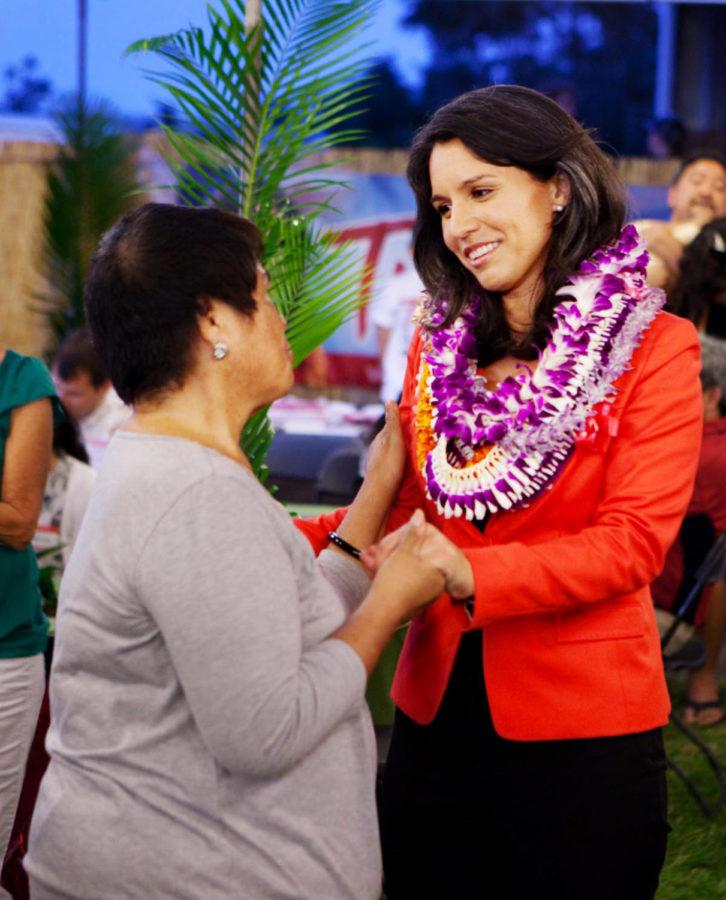Hawaii elects Tulsi Gabbard, first Hindu representative to U.S. Congress
Photo courtesy of votetulsi.com
Tulsi Gabbard, right, was elected to represent Hawaii’s 2nd Congressional District in the recent elections. Gabbard is the first Hindu-American elected to U.S. Congress.
November 27, 2012
The recent election saw a number of notable outcomes, among them the legalization of marijuana for recreational use in Colorado and Washington, as well as votes endorsing same-sex marriage in several states.
In a slightly overlooked first, Hawaii elected Tulsi Gabbard, a practicing Hindu, to represent the state’s second district in
the U.S. House of Representatives.
The term Hindu encompasses a variety of religious traditions, but Gabbard identifies with the Vaishnava branch of Hinduism. At her swearing-in ceremony, Gabbard will take her oath on the Hindu text Bhagavad Gita. In addition to being the fist Hindu member, Gabbard will also be one of the first female combat veterans to serve in Congress.
Gabbard was born in American Samoa and raised by a Catholic father and Hindu mother. Her family relocated to Hawaii when Gabbard was two, and Gabbard embraced Hindu practices as a teenager. She went on the serve two deployments to the Middle East as a member of the Hawaii National Guard.
Gabbard is a Democrat and has voiced support for allowing women to engage in close combat. She has also advocated the withdrawal of U.S. troops from Afghanistan.
Gabbard’s district also elected one of two practicing Buddhists to ever serve in Congress, Mazie Hirono, in 2006.
In a statement after her election victory, Gabbard expressed happiness about being able to serve as the first Hindu in Congress.
“On my last trip to the mainland, I met a man who told me that his teenage daughter felt embarrassed about her faith, but after meeting me, she’s no longer feeling that way,” Gabbard said.
“He was so happy that my being elected to Congress would give hope to hundreds and thousands of young Hindus in America that they can be open about their faith, and even run for office, without fear of being discriminated against or attacked because of their religion,” Gabbard said.
Senior lecturer in political science Dirk Deam shared his take on Gabbard’s victory.
“It’s significant only in the respect that it shows a continuing increase in the pluralism of Congress, which is to be expected because the country is that way too,” Deam said. “It doesn’t have to be a direct numerical equivalent by any means.
Women can represent men, men can represent women, Christians can represent Hindus and vice versa, but to the extent that we’re different as a people, the fact that Congress is plural and different and complicated is a better situation for all of us.”
The recent election also saw victories for the first openly bisexual member of the House of Representatives, Kyrsten Sinema, as well as the first openly gay Senator, Tammy Baldwin.
Travis Chilcott, assistant professor in the department of philosophy and religious studies, sees Gabbard’s election, as well as the victories of Sinema and Baldwin as positive developments. “I think it highlights a watershed moment in our political history and a level of acceptance for diversity in this country that I think is unprecedented for the U.S.,” Chilcott said.







